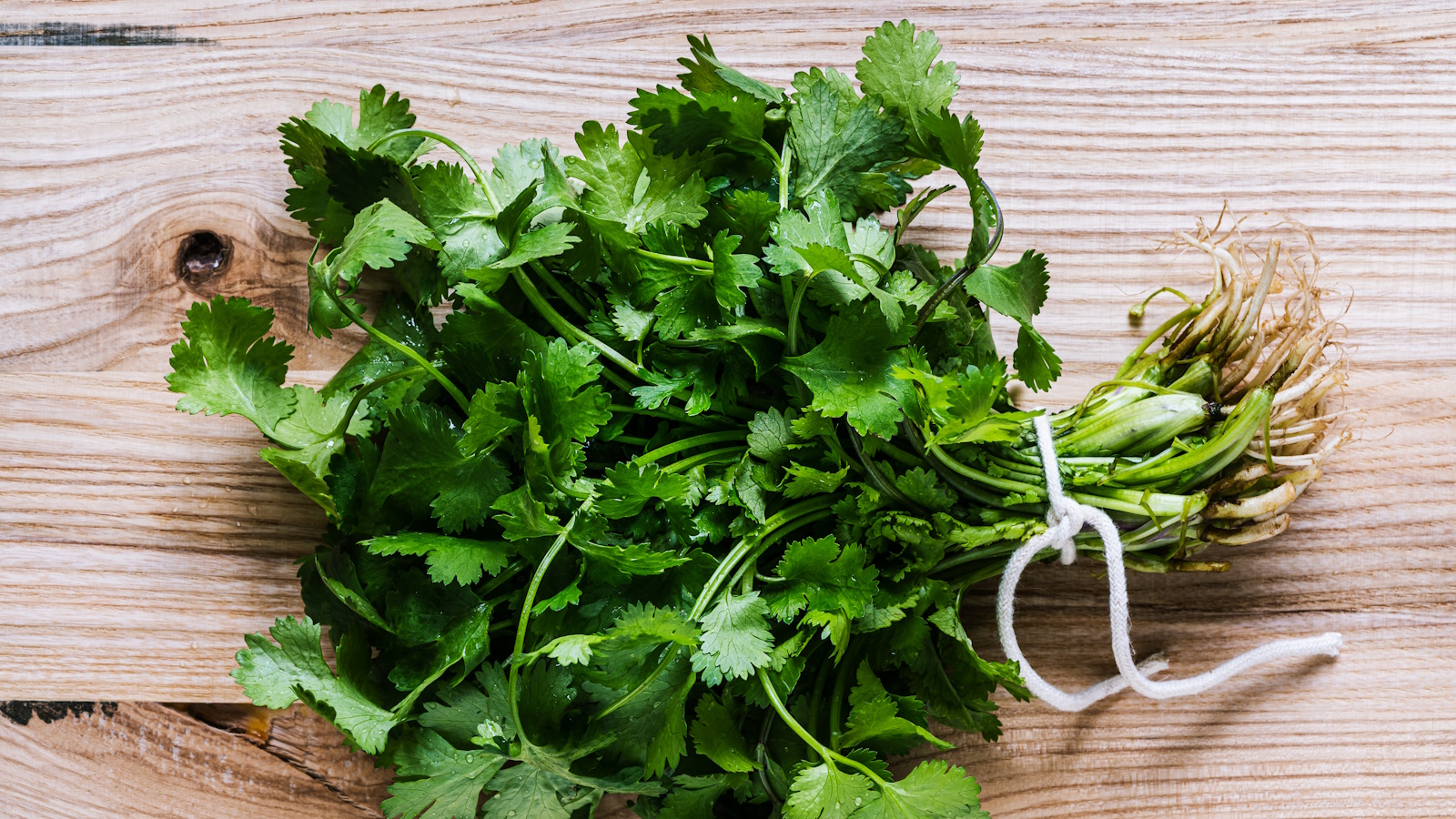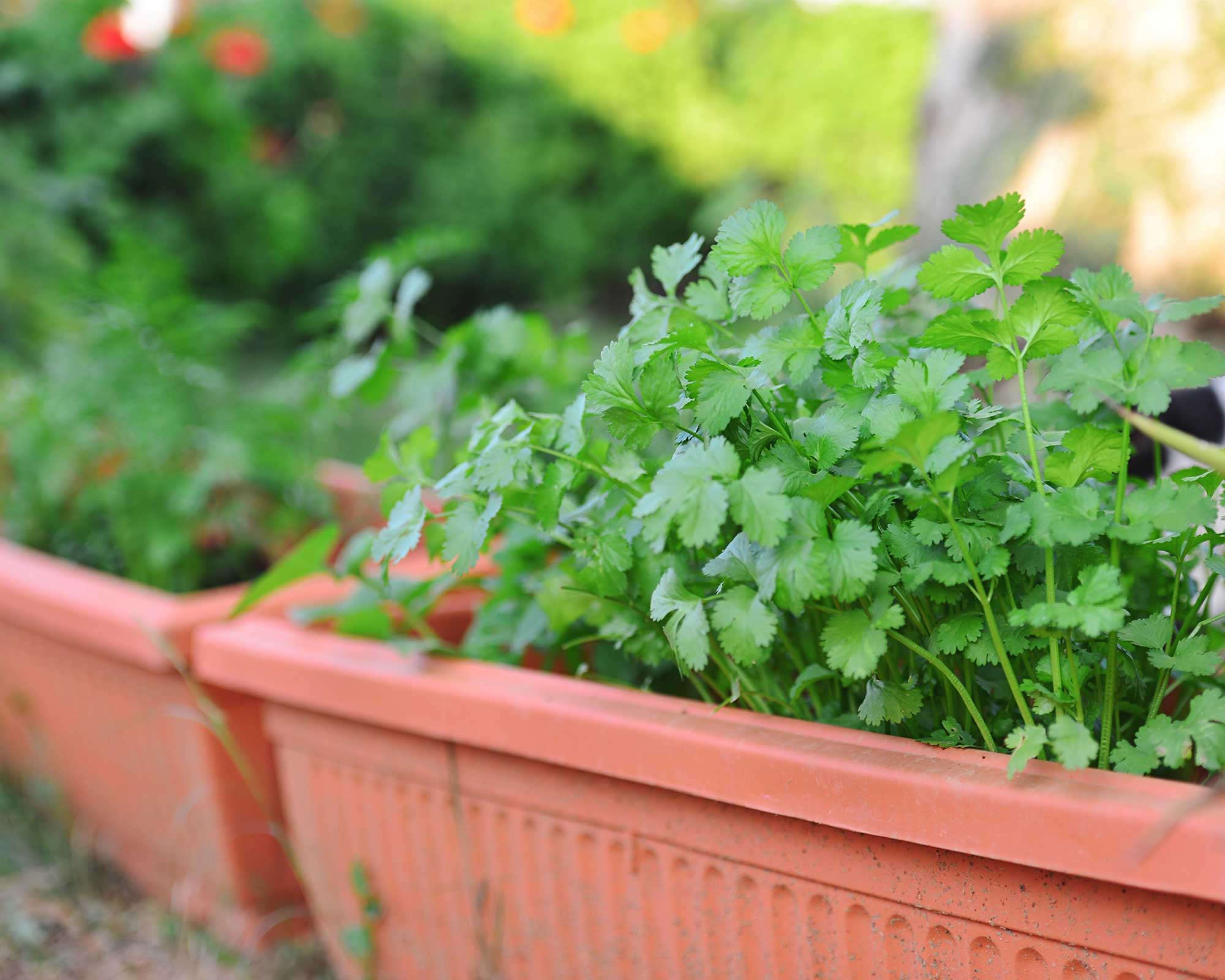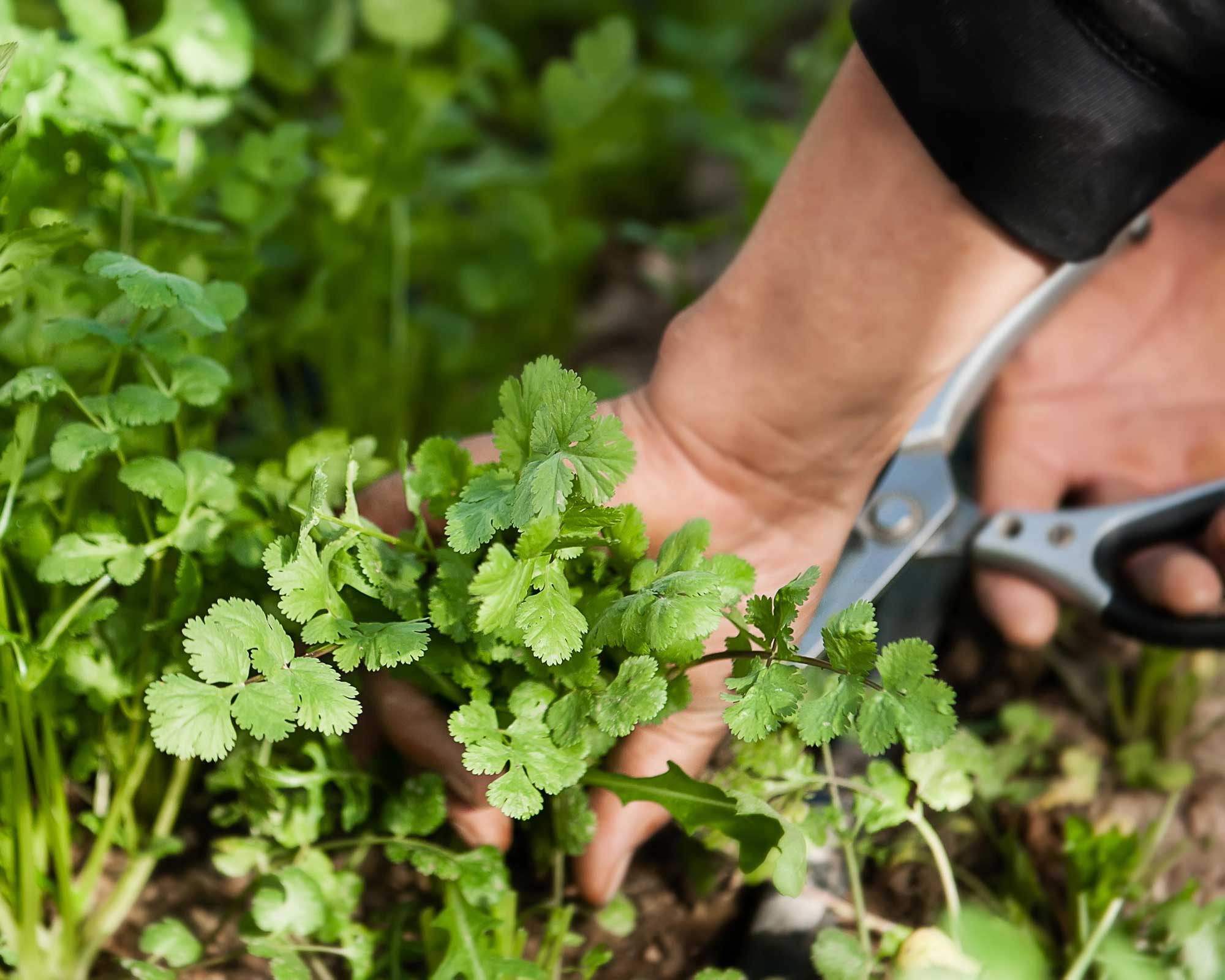
If you're a fan of this aromatic herb, then you may be wondering how to prune cilantro, also known as coriander, to encourage more growth. And really, it couldn't be simpler.
Learning how to grow cilantro is easy in itself – whether you're raising plants from seeds, tending to a container on a sunny window sill, or planting a pot into a herb bed outdoors. Cilantro, or Coriandrum sativum, is a staple in my own herb garden. I adore it in curries, Mexican food with a drenching of fresh lime juice, and on salads.
Although cilantro is an annual, I regularly cut my plants back and have found this helps to get the most from your crop. The following guide explains exactly how to do it.
Why prune cilantro

'Regular picking encourages more leaves to sprout,' says Rachel Bull, head of gardens on Homes & Gardens. 'I use a lot of cilantro in my cooking, and found by snipping stems off weekly, my plants were bushier and healthier than ever.'
It's similar to how deadheading flowers encourages new blooms to grow, extending the flowering season of many annuals. Cilantro is a cut-and-come-again crop, too, and a must-have for your herb garden ideas.
A key benefit of pruning cilantro is that it will delay the plants' development of seeds, thus extending the time that you can harvest the leaves. It will also keep your plants looking neat and tidy rather than leggy and droopy. 'I prune my cilantro plants once a week during the growing season, even if I'm not intending to use any in the kitchen, to try and prevent it from flowering,' says Rachel.
These organic cilantro seeds from True Leaf Market are a 'slow bolt' variety, which will give you a longer harvest.
How to prune cilantro to ensure it keeps growing

- Wait until your plant is around 6 inches (15cm) tall, then take a pair of sharp, clean scissors and snip out stems towards the base, ideally just above a leaf or secondary stem. This means you will be pruning the more mature stems, rather than the younger ones.
- Avoid cutting more than one-third of the plant at a time as this can weaken it.
- At this time, you can also prune away any yellowing or damaged leaves from your cilantro plant, so that it can put all its energy back into new growth.
- To promote the maximum amount of new growth, it's best to prune cilantro from a different section of your plant each time. If you're growing your cilantro in a pot, simply rotate the pot each time you cut some. By the time you get back to the first section, new growth is likely to have appeared. If you spot flower buds developing, remove these stems to prolong the plant's life further.
If you don't want to use your harvested cilantro straight away, you can always freeze it for a later date.
These Modern Sprout pruning shears are perfect for pruning more delicate herbs.
FAQs
Should I prune cilantro once it has flowered?
Once your cilantro has developed flowers, the leaves lose their tasty flavor and instead, turn bitter. Allow them to go to seed (usually 2–3 weeks after they've flowered) and you can then collect them up ready to sow for a brand new batch. Alternatively, you can use the dried seeds as a spice in the kitchen. Try growing some of the best herbs to grow indoors, too, for an extra flavor boost for your food.
There are lots of different types of aromatic herbs you can grow in a herb bed. I love to create planters near a doorway, to enjoy the scent as you brush past them, as well as being close to the kitchen. If you like to grow a wide range of edible crops, you might be interested in these unusual herbs, too.







